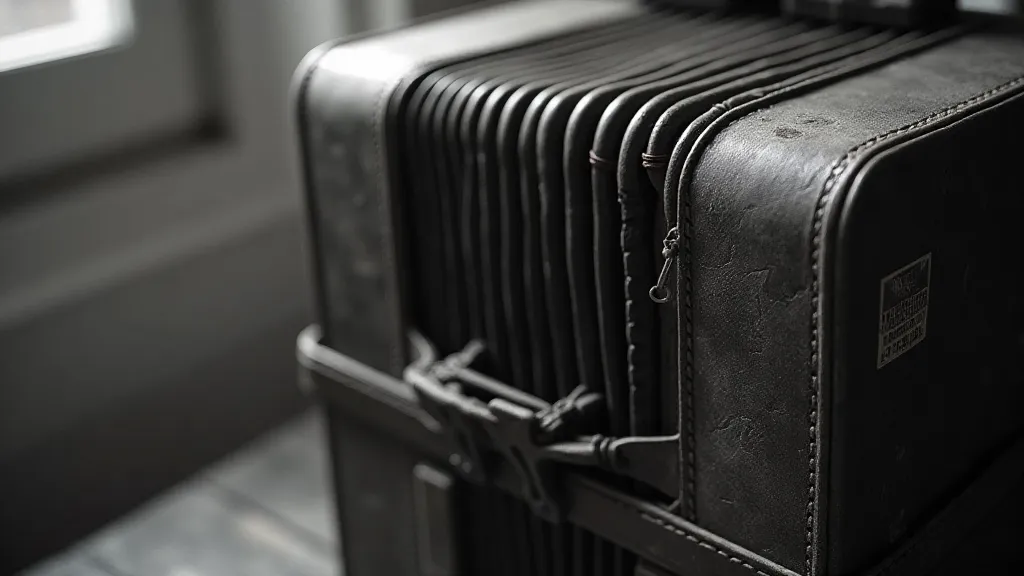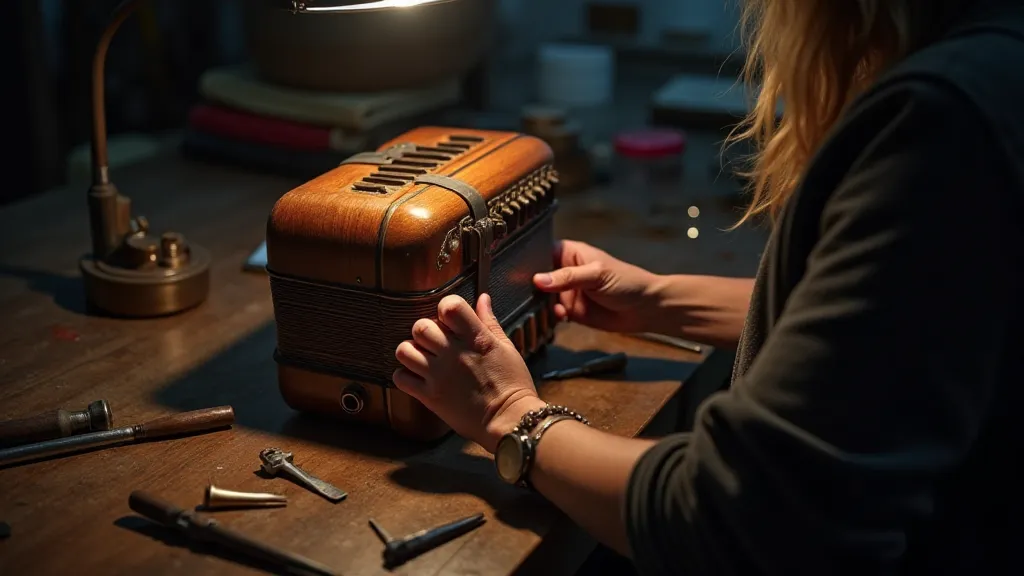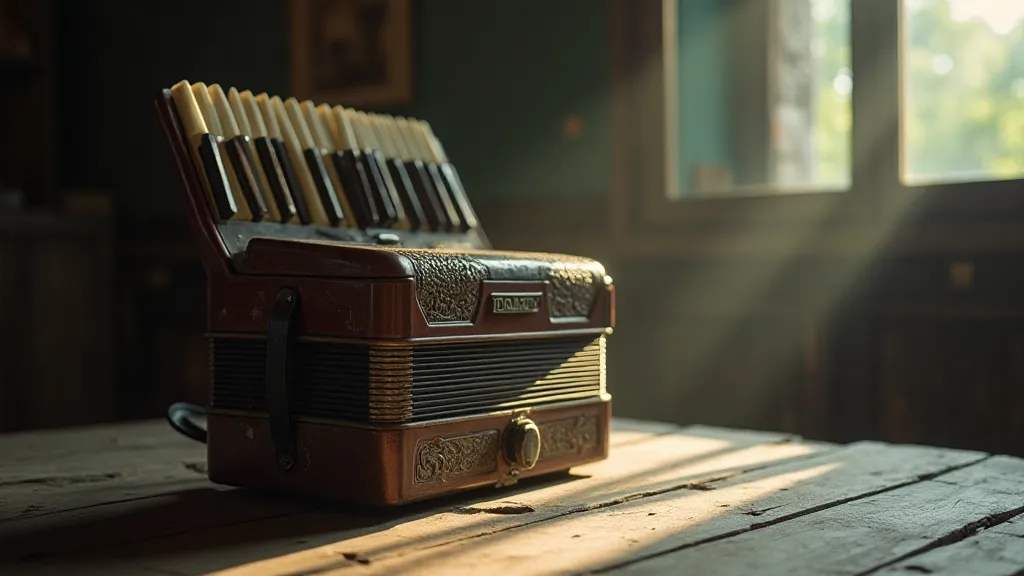The Echo of Footprints: Reclaiming Narrative in a Consumerist Age
It sits in my grandfather’s attic, a hulking presence of dark wood and tarnished brass. An accordion. Not the sleek, modern kind you might see on a stage, but a vintage instrument, a relic of a time when objects held stories, not just price tags. When a purchase wasn’t just about acquisition, but about inheriting a legacy, a connection to a craftsperson’s skill, and a lineage of music.
Running my fingers across the worn bellows, I’m acutely aware of the echoes contained within. Not just the melodies it once played, but the whispers of a different era – one less preoccupied with the relentless pursuit of 'more.' It’s a poignant reminder of what we’ve lost in the shuffle of consumer culture, and perhaps, what we can reclaim.

The Story We're Told
We live in a world meticulously designed to convince us we *need* things. Not just necessities, but the latest gadget, the trendiest outfit, the bigger house. It's a masterful campaign of ‘narrative capture,’ where the stories we tell ourselves about who we are, what makes us happy, and what constitutes a 'good life' are subtly, but powerfully, shaped by external forces. Advertising isn’t just about selling a product; it's about selling a feeling, an identity. "Buy this car and you'll be adventurous," it whispers. "Wear this dress and you'll be desirable.”
Think about it. How often do you catch yourself wanting something you didn't realize you wanted just a few months ago? It’s not usually a deep-seated desire. It’s the echo of a perfectly crafted marketing message, reverberating in your subconscious. We're bombarded with images and narratives that equate material possessions with happiness, success, and belonging. This isn’s a conspiracy; it's simply the natural consequence of a system built on constant growth and consumption.
This conditioning operates on a deeply emotional level. It taps into our insecurities, our aspirations, and our innate desire to be accepted and admired. We’re conditioned to believe that lacking the ‘right’ things defines us, and that acquiring them will somehow fill a void, complete us, or prove our worth. The drive for ‘more’ often distracts from more sustainable choices. Many are seeking ways to simplify their lives and embrace a more minimalist approach. Consider exploring simple swaps for a healthier home as a starting point to reduce unnecessary consumption and create a more mindful environment.
The Craft as Counter-Narrative
My grandfather's accordion represents a different narrative. It’s a testament to the slow, deliberate process of craftsmanship. It wasn't mass-produced in a factory; it was painstakingly assembled by a skilled artisan, likely generations ago. Each button, each reed, each piece of wood was chosen and fitted with care. It’s a tangible connection to a time when value was measured not in dollars and cents, but in the hours of labor, the quality of materials, and the enduring functionality of the object. The artistry and care invested in such objects stands in stark contrast to the throwaway culture prevalent today.
Restoring antique instruments, or collecting them, isn's just about acquiring a beautiful object; it's about participating in a counter-narrative. It’s about appreciating the skill and artistry of the original maker, and preserving a piece of history. It’s about valuing longevity and repair over disposability. It’s about recognizing that true value isn’t found in the newest model, but in the enduring quality of something that has stood the test of time. The desire for fresh produce and supporting local farmers often aligns with this value system. Discover the benefits of supporting local farmers and choosing seasonal produce, a tangible expression of appreciating slow, deliberate processes.
Even the act of learning to play an instrument – any instrument – offers a refuge from the superficiality of consumer culture. It requires focus, patience, and a dedication to mastering a skill, not just accumulating possessions. It’s a journey that rewards effort and creativity, fostering a sense of accomplishment that transcends the fleeting satisfaction of a new purchase.

Deconstructing the Script
Reclaiming our narrative isn's about deprivation or self-denial. It’s about conscious awareness and intentional choice. It’s about pausing before we reach for that next purchase and asking ourselves: “Why do I want this? What story am I buying into? Is this truly aligned with my values and my vision for a fulfilling life?”
It requires a willingness to question the narratives we’ve been told – the stories that equate happiness with possessions, success with status, and belonging with brand loyalty. It means challenging the notion that we *need* the latest technology, the most fashionable clothes, the biggest house. Perhaps travel is on your mind, and seeking ways to minimize the impact of your adventures. Consider the principles of sustainable travel tips to explore the world responsibly and minimize your footprint.
Instead of focusing on what we lack, we can shift our attention to what we already have – the skills we’re developing, the relationships we’re nurturing, the experiences we’re creating. We can find joy in simple pleasures – a walk in nature, a good book, a shared meal with loved ones. We can cultivate a sense of gratitude for the abundance that already exists in our lives. This shift in perspective allows us to appreciate the richness of life beyond material possessions. Many are finding inspiration in repurposing and creatively transforming what is readily available, effectively turning waste into a resource.
The process is ongoing, a continuous practice of self-reflection and intentional living. There will be moments of weakness, times when we succumb to the allure of consumerism. But the key is to remain aware, to gently redirect our focus, and to continue building a narrative that is truly our own. Sometimes, this process involves looking at things from a new angle – seeing the potential in discarded materials and transforming them into something beautiful and functional. Read about the alchemist's hearth for inspiration on transforming waste into resourceful grace.
The Echo of Value
My grandfather's accordion isn's just an antique instrument; it’s a reminder. A reminder that true value lies not in what we own, but in the experiences we create, the relationships we build, and the skills we cultivate. It’s a reminder that we have the power to reclaim our narrative, to rewrite the story of our lives, and to create a world that is more sustainable, more meaningful, and more deeply fulfilling. It's a legacy we can choose to embrace, one that prioritizes connection, creativity, and contribution over consumption.
Listen closely. Beyond the clatter and noise of consumer culture, there’s an echo. The echo of craftsmanship, the echo of connection, the echo of a life lived in accordance with values that transcend the fleeting allure of possessions. It’s an echo worth listening to. It’s an echo worth embracing. It’s a choice we each have the power to make – to move beyond the script written by external forces and create a story that is truly our own, a story filled with purpose, meaning, and a deep connection to the world around us.






